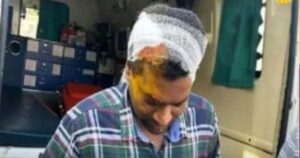Tragedy in Manipur: Chilling Details of a Meitei Family’s Abduction and Murder
3 min read
Manipur’s ongoing ethnic conflict witnessed a horrifying turn on November 11, 2024, when six members of a Meitei family were abducted and brutally killed, allegedly by Kuki militants. This heinous act occurred amidst ongoing violence in Jiribam district, a region on the border of Assam. The incident has drawn widespread condemnation and further spotlighted the spiraling ethnic violence that has devastated Manipur over the past year.
The Incident
The victims were members of a single family seeking refuge in a relief camp in Borobekra, Jiribam. On November 11, during an armed encounter between Kuki militants and Central Reserve Police Force (CRPF) personnel, the family was abducted at gunpoint. The victims included three women and three children:
- Yumrembam Rani Devi (60)
- Telem Thoibi Devi (31)
- Telem Thajamanbi Devi (8)
- Laishram Heithoibi Devi (25)
- Laishram Chingkheinganba Singh (2.5 years old)
- Laishram Lamnganba Singh (8 months)
The family was reportedly executed shortly after being taken hostage. Their bodies, discovered in stages over the following days in the Jiri and Barak Rivers, bore gruesome evidence of violence. Reports revealed dismemberment, including a young child’s headless body entangled in tree branches, and the semi-naked, decomposed remains of others floating in the rivers.
Discovery and Post-Mortem
The decomposed bodies were retrieved from the rivers between November 15 and 17 and sent to Silchar Medical College and Hospital (SMCH) in Assam for autopsy. Preliminary findings confirmed the brutal nature of their deaths, highlighting the extreme levels of violence inflicted on the victims. Post-mortem examinations revealed that some bodies showed signs of mutilation, indicative of inhumane treatment before or after death. While five bodies were recovered, one—believed to be that of Telem Thoibi Devi—remains missing.
Widespread Outrage and Protests
The killings have provoked widespread protests across Manipur and neighboring regions. Candlelight vigils were held in Silchar, Assam, where hundreds of Meitei citizens demanded justice. In Imphal, demonstrations turned into anger-fueled marches targeting political representatives, including attempts to storm the residence of Chief Minister N. Biren Singh. Protesters have criticized the government’s failure to rescue the hostages or provide timely updates on their status, accusing authorities of inaction in the face of escalating violence.
Context of the Violence
The incident is a grim reflection of the ethnic strife between the Meitei and Kuki-Zo communities, which has plagued Manipur since May 2023. Disputes over land rights, political representation, and social equity have fueled clashes, resulting in over 220 deaths and the displacement of thousands. The violence has grown increasingly brutal, with both communities suffering atrocities. In this case, the targeted killing of women and children has highlighted the deepening animosity and breakdown of order in the state.
Government and Civil Society Responses
Political leaders and civil society groups have condemned the killings. Ramdas Athawale, Union Minister of State for Social Justice and Empowerment, labeled the act as terrorism and called for stringent action against the perpetrators. Opposition leaders have demanded a complete overhaul of the government’s approach to the crisis, calling for accountability at all levels of administration.
Meanwhile, local law enforcement in Assam and Manipur, along with paramilitary forces, have increased patrols and search operations in border areas. However, the lack of a unified strategy to address the root causes of the conflict continues to impede peace-building efforts.
A Call for Justice and Reconciliation
The tragedy in Jiribam underscores the urgent need for reconciliation and justice in Manipur. The ongoing ethnic conflict threatens not only lives but the fabric of the region’s diverse communities. As calls for accountability grow louder, the government must act decisively to restore trust, ensure justice for the victims, and address the underlying grievances fueling the violence.
Manipur remains at a crossroads, and the path forward requires collaboration between the state, central government, and civil society to end the cycle of violence and pave the way for lasting peace.





